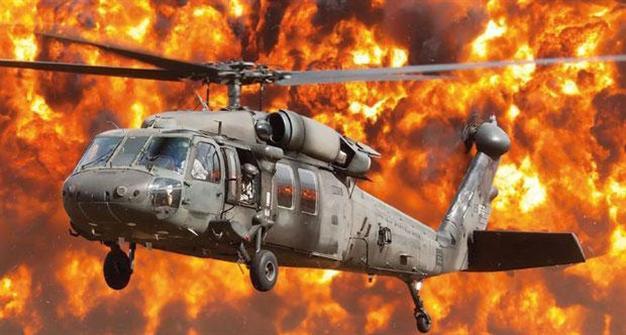US defense equipment transfer to Turkey still on hold amid discord on regional issues
Tolga Tanış - WASHINGTON

Transfer of four separate defense system equipment Turkey demands from the United States is still pending, amid different approaches between the two NATO allies towards regional issues, particularly Syria.
Ankara has thus far not been able to get permission for the transfer of four defense system equipment it has long demanded from the U.S. and which it sees as critical for Turkey’s national security. The U.S. and Turkey’s different perspectives on issues in the Middle East are to blame, particularly Syria.
The key defense system equipment Turkey demanded from the U.S. is called “smart ammunition” –also known as PGM and used to prevent civilian losses– as Turkey is carrying out intense counterterrorism operations due to an upsurge in violent attacks by outlawed Kurdistan Workers’ Party (PKK) militants.
Smart ammunition has been in Turkey’s inventory since 2010, but is about to run out. Turkey needs to get a new permission to buy more, which Turkey has been waiting for about a year.
Security sources said if the U.S. does not issue permits for smart ammunition sales to Turkey, Turkey would run out of the military equipment critical in military operations against the PKK.
Among the defense system equipment Ankara demanded from Washington are unmanned combat aerial vehicles, military helicopters, smart military supplies, frigates and military trailers.
Turkey filed two separate requests with the U.S. administration when Nabi Şensoy was the Turkish ambassador to the U.S., as defined in military agreements between the two, one in December, 2008 and another in February 2009, to get unmanned combat aerial vehicles (UCAVs) Predator and MQ-9 Reaper, weaponized drones, the transfer approval of which Turkey has been waiting for around seven years.
The U.S. had set a date for unofficial talks on UCAV transfers to Turkey on April 2010 but the talks were brought to a halt with the Mavi Marmara crisis, when Israeli commandos stormed the Turkish vessel Mavi Marmara carrying humanitarian aid to Gaza. The attack happened in international waters and killed ten Turkish citizens, including a Turkish-American, leaving many others wounded.
The U.S. Defense Security Cooperation Agency (DSCA) was expected to ask Turkey to file UCVA transfer requests with an amendment on UCVA sales to NATO allies that U.S. President Barack Obama revealed February this year; however, no progress was recorded to this end.
Turkey signed a military equipment sale agreement with the American defense contractor Sikorsy in February 2014, with the agreement suggesting sales of 109 military helicopters to Turkey.
Also, 109 other helicopters, expected to be produced in Turkey as ready to export to other countries, were also cited in the agreement, but U.S. administration has still not approved their sales contract.
In a separate request Turkey filed with the U.S. administration, Turkey demanded three Oliver Hazard Perry frigates, two of them floatable and one for spare use, along with a military trailer.
In the end of 2012, the U.S. Navy sorted out the Perry-class frigates. Two of them had been expected to be sent to Turkey, according to a law voted in by the U.S. Congress. The two, however, could not be transferred to Turkey, when Turkish lobbyist organizations in the U.S. meddled in the matter.
Transferring Perry-class frigates to Turkey became easier as no country wanted them, Turkish security sources said.
 Transfer of four separate defense system equipment Turkey demands from the United States is still pending, amid different approaches between the two NATO allies towards regional issues, particularly Syria.
Transfer of four separate defense system equipment Turkey demands from the United States is still pending, amid different approaches between the two NATO allies towards regional issues, particularly Syria.